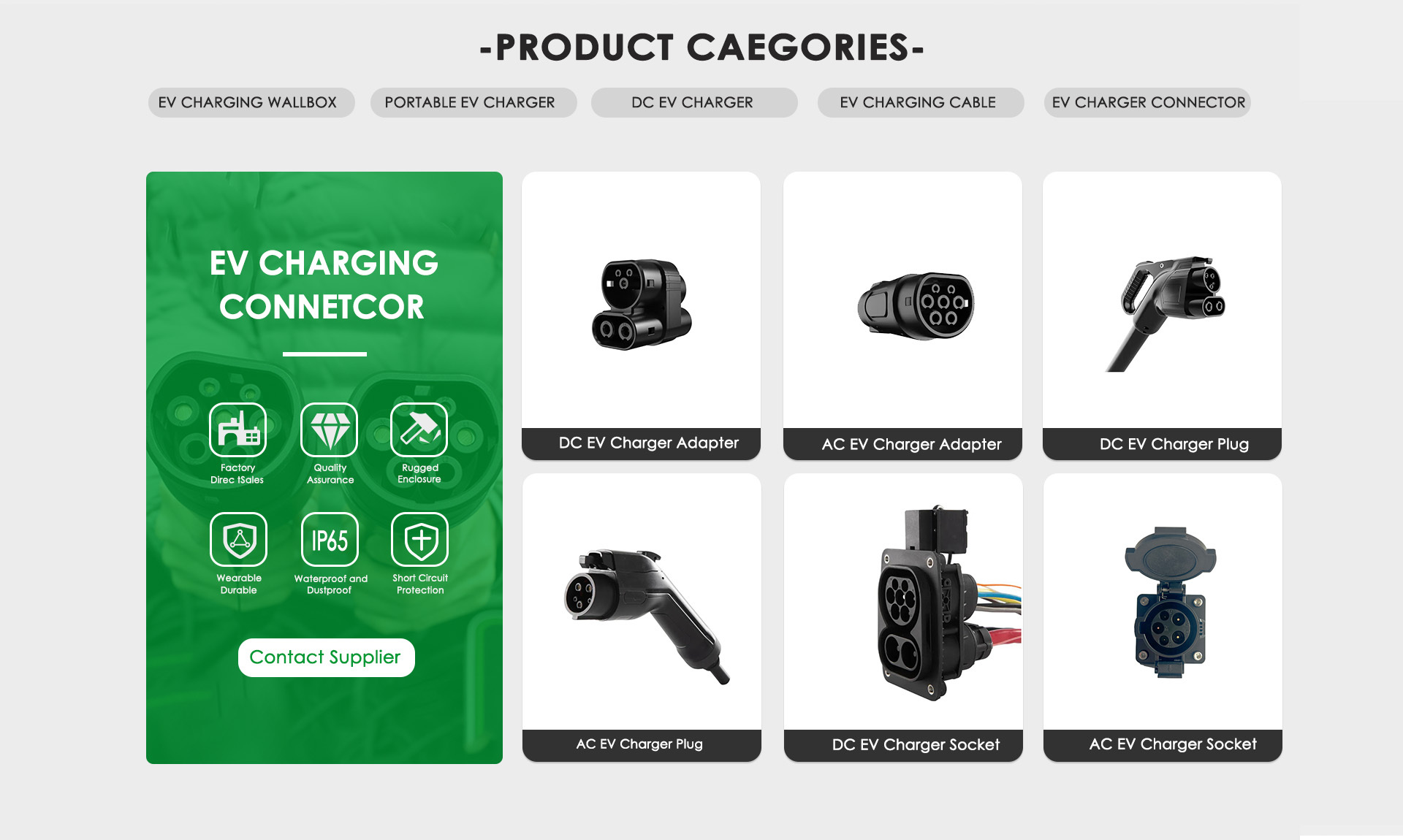EV charging connectors are crucial for linking your electric vehicle to a charging station and transferring power to recharge your vehicle's battery. Understanding the different connector options and their compatibility is vital for a smooth charging experience.
We will explore popular connector types like Type 1 and Type 2 and fast-charging options like CCS and CHAdeMO connectors. This includes discussing technical specifications, charging speeds, and compatibility. We'll also cover safety considerations, future compatibility, and the importance of selecting a suitable connector for your EV model.
Common EV Charging Connector Types
Various EV charging connector types are utilized across the globe. The following connectors exhibit variations in design, shape, and functionality while adhering to standardized guidelines to ensure compatibility between charging stations and electric vehicles.

Type 1 (SAE J1772)
Description and Features: Type 1 connectors, referred to as SAE J1772 connectors, are frequently employed in North America and Japan. These connectors consist of a 5-pin design and can provide charging at 16 or 32 amps, depending on the capability of the EV charging station.
Compatible Electric Vehicles: Famous models from Nissan, Chevrolet, and Ford, support Type 1 connectors.
Pros and Cons: Type 1 connectors are compatible with various electric vehicle models. However, they're only suitable for slow or overnight charging.
Type 2 (IEC 62196)
Description and Features: Type 2 connectors, alternatively referred to as IEC 62196 or Mennekes connectors, enjoy extensive usage across Europe. These connectors possess a 7-pin design and can accommodate charging speeds of up to 32 amps, contingent upon the capabilities of the charging station.
Compatible Electric Vehicles: Many European electric vehicle manufacturers, such as BMW, Audi, and Mercedes-Benz, use Type 2 connectors.
Pros and Cons: Type 2 connectors provide a good charging pace compared to Type 1 and have gained widespread acceptance throughout Europe. However, their prevalence in other regions may be less significant.
CCS (Combined Charging System)
Description and Features: CCS connectors integrate the functionalities of Type 1 or Type 2 connectors with the added advantage of DC fast charging capabilities. These connectors feature two additional DC pins to facilitate high-power charging.
Compatible Electric Vehicles: Various electric vehicle models, including those from Volkswagen, BMW, and Hyundai, support CCS connectors.
Pros and Cons: CCS connectors, with a charging capacity of 80A to 200A, offer the versatility of both AC and DC charging, enabling rapid charging options. Specialized charging stations may be necessary to use these connectors.
CHAdeMO
Description and Features: CHAdeMO connectors are primarily used by Japanese automakers. They support high-power DC fast charging and have a unique 9-pin design.
Compatible Electric Vehicles: Electric vehicles from Nissan, Mitsubishi, and Kia often use CHAdeMO connectors.
Pros and Cons: CHAdeMO connectors enable fast charging and are widely used by Japanese models. However, they are less prevalent compared to CCS connectors globally.
GBT (China)
GBT connectors (16A, 32A) are predominantly utilized in China and form part of the Chinese national standard for EV charging. Here is an overview of GBT connectors:
Description and Features: GBT connectors boast a distinct design and offer compatibility for both AC and DC charging. They possess the capability to deliver high-power charging, akin to CCS connectors.
Compatible Electric Vehicles: Electric vehicle models manufactured and marketed in China typically support GBT connectors.
Pros and Cons: GBT connectors present swift and efficient charging options for electric vehicles in China. Nonetheless, their usage remains primarily confined to Chinese EVs.
Factors to Consider When Choosing a Charging Connector
Choosing the suitable charging connector for your electric vehicle (EV) is crucial for a seamless charging experience.
Vehicle Compatibility:
Ensure charging connector compatibility with your specific EV model. For example, Tesla vehicles require a Tesla-specific connector, while other EVs commonly use standardized connectors like Type 1 (SAE J1772) or Type 2 (IEC 62196). Verify the recommended connector type from your vehicle manufacturer.
Charging Speed and Power Levels:
Take into account the charging speed and kW supported by the charging connector. For example, the CCS EV charging connector facilitates Level 3 fast charging, enabling swift charging sessions.
Connector Availability and Charging Infrastructure:
Assess the accessibility of charging connectors in your region and the prevailing charging infrastructure. In Europe, Type 2 connectors are widely employed, while in North America, Type 1 connectors are more prevalent.
Future Compatibility and Standards:
Ensure the EV charging connector's future compatibility as EV technology evolves. Consider a CCS connector with AC/DC charging capabilities for long-term compatibility with advancing standards.
Safety and Certification:
Prioritize safety with certified charging connectors meeting international standards such as UL, CE, and TÜV.
Durability and Reliability:
Choose a durable EV charging connector (IP54 or IP67) for frequent use and various weather conditions, reducing malfunctions and ensuring longevity.
User Convenience and Design:
Assess user-friendly features like easy plug-in mechanisms, secure locking systems, and ergonomic designs for convenient charging experiences.
Does EVCOME offer all types of Charging Connectors?
EVCOME strives to enhance the charging experience for EV owners, irrespective of regional charging infrastructure. Our EV Charging Connectors range encompasses Type 1 (SAE J1772), Type 2 (IEC 62196), Combined Charging System (CCS), CHAdeMO, and Tesla-specific connectors.
This diverse selection guarantees compatibility with different EV models and charging infrastructure. Contact us for a satisfying EV charging solution.
EVCOME’s main products contain EV charging stations, portable EV chargers, EV chargers cables, EV charging connectors, etc. All our products are certificated for each market, such as CE, TUV, CSA, FCC, UL, ROHS, etc, Also,EVCOME are able to do customization according to different customers demands, and we have been exported to EU,Middle East,South East Asia area etc..,